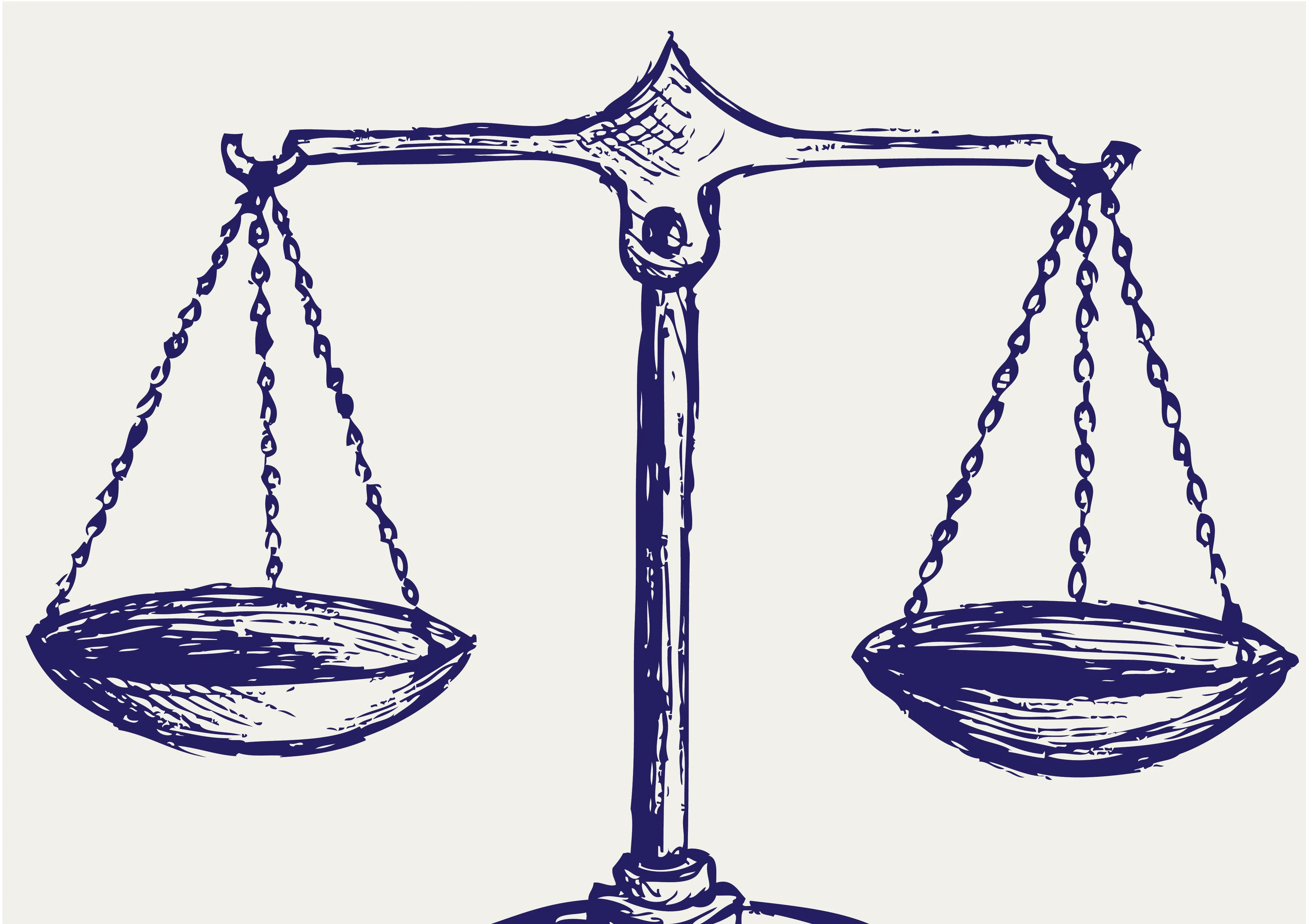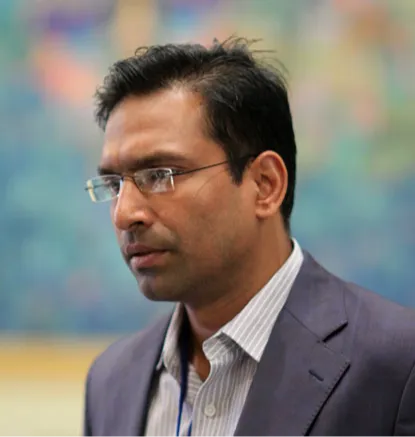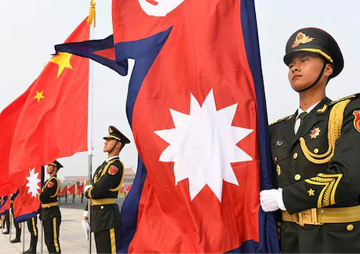
The Democracy Report 2020 by V-Dem Institute created quite a storm recently in India’s policy circles. The report claimed that the world’s largest democracy is on the verge of
losing its status as a democracy. Noting India’s rapid slide into an autocracy, the Sweden-based report, which produces the most comprehensive analyses on the health of democracy across the world, cited trends of dramatic erosion of basic civil liberties, particularly media freedom and suppression of the freedoms of free speech and dissent as the key reasons for this major dip.
However, much more scathing is the
recent statement by Michelle Bachelet, United Nations High Commissioner for Human Rights (UNHCR), who expressed her deep concern about the stifling of the rights to free speech and civil liberties in the country. Drawing attention to the deterioration of human rights, particularly the arrest of a number of civil society activists and human rights defenders, and the government’s curbing of free speech and coercing of independent media, she particularly sought international attention on the widespread use of the anti-terror law — the Unlawful Activities (Prevention) Act, 1967 or UAPA — in a growing number of instances. Similar concerns have been reported by other global bodies and democracy watchdogs. We do a quick stocktaking of the UAPA and the judicial response to such developments.
Indiscriminate use of UAPA
The
UAPA is largely an anti-terror law that is supposed to be applied only in rare instances. However, the experience with the UAPA over the years suggests that it is being indiscriminately used by the government — both Union and states — at varying degrees. Going by the statistics of the National Crime Records Bureau (NCRB), the year 2019 saw the biggest jump in cases filed under the UAPA. As many as 1,226 people have been arrested under the controversial anti-terror law, a
33% increase from 2016. In 2019 itself, as many as 11 per cent of cases were closed by the police for want of evidence. A very low conviction rate indicates that the UAPA is indiscriminately used by the police to harass and intimidate.
The experience with the UAPA over the years suggests that it is being indiscriminately used by the government — both Union and states — at varying degrees.
The last two years, in particular, have witnessed a sharp rise in the arrests of several prominent human rights defenders, civil society leaders, agitating leaders and even protesting students under the UAPA and sedition laws, including Sudha Bharadwaj, Vernon Gonsalves, Arun Ferreira, Varavara Rao, Anand Teltumde, Gautam Navlakha, and Arun Ferreira. These activists have been arrested in connection with their alleged involvement in the
Bhima-Koregaon commemorative event held on 1 January 2018. The most recent addition to the list of arrests under the UAPA is 83-year-old Father Stan Swamy, a Jesuit priest and a prominent Adivasi rights activist from Jharkhand.
These apart, there are scores of activists, academics, and right to information leaders who have been booked under the UAPA and sedition laws — such as Akhil Gogoi from Assam,
Safoora Zargar and Pinjra Tod student activists from Jamia Milia Islamia University involved in protests against the controversial Citizenship Amendment Act (CAA). More recently, student activist
Umar Khalid was arrested over his alleged role in the Delhi riots that happened earlier this year.
Problems with the UAPA
While the last few years have witnessed a sharp spike in UAPA cases, the UAPA’s misuse has been going on for much longer and across all regimes and government types (Centre and states).
The UAPA was enacted in 1967 with the objective of promoting and ensuring national integration. In 2004, after the notorious and highly abused Prevention of Terrorism Act, 2002 (hereinafter POTA) was repealed by the Congress-led United Progressive Alliance (UPA) government, in its place the UAPA was amended to include provisions to counter terrorism and other unlawful activities. The POTA, which was enacted by the BJP-led National Democratic Alliance (NDA) government in 2001 in the aftermath of the 11 September 2001 terrorist attacks on the United States, had retained many provisions of TADA (Terrorist and Disruptive Activities Prevention Act), one of the
most draconian laws that India ever enacted. Similar to previous laws, POTA defined “terrorist” and “terrorist activities” rather
vaguely. This allowed for indiscriminate applications by police and security agencies.
The POTA, which was enacted in the aftermath of the 11 September 2001 terrorist attacks on the United States, had retained many provisions of TADA, one of the most draconian laws that India ever enacted.
While TADA and POTA were repealed after massive civil society outcries and strong judicial rebukes to the governments, the successive governments at the Centre (UPA and NDA) have found it convenient to enlarge this once moribund law (the UAPA) to cover many things including some of the key features of the repealed POTA. For instance, the UPA government which repealed POTA in 2004, amended the 1967 UAPA to make it an
omnibus preventive detention law. UAPA expanded the definition of ‘unlawful activity’ to include ‘terrorist act’ and ‘terrorist organisation’, which were key derivatives of POTA. After the 2008 terror attack in Mumbai, the UPA government added
more provisions similar to POTA and TADA regarding the maximum period a person can be held in police custody and incarcerated without a charge sheet, and it also incorporated restrictions on bail into the UAPA.
The NDA government
further amended the Act in July 2019 giving the State and its security agencies far more expansive teeth. While the definition of a ‘terrorist’ remains vague in this law, the amendments in 2019 have allowed the Central government wider power to designate a person as a “terrorist” without a trial. In addition, individuals can be named as terrorists even though they may not have any connection or affiliation with the 36 terrorist organisations listed in the
First Schedule of the UAPA. What is particularly worrisome is that the UAPA does not provide a judicial mechanism for either individuals or organisations listed as terrorists to challenge such a designation. For denotification, an application is to be
made to the Central Government. To conclude such an application, a Review Committee is set up. The Chairperson of this Committee, though a High Court Judge,
is appointed by the Central Government. Thus, even the review procedures that are supposed to be part of a free and fair trial are mere extensions of biased institutions — institutions that are responsible for the arrest in the first place. On the whole, the major problem with the UAPA is that it deems an individual to be a terrorist without a trial and sees them as someone who cannot be granted bail because they pose a threat to society.
What is particularly worrisome is that the UAPA does not provide a judicial mechanism for either individuals or organisations listed as terrorists to challenge such a designation.
Further, the UAPA provides police and state authorities a long window to investigate and prosecute the arrested individual, which defeats the purpose of a speedy and fair trial. While 90 days are provided for completion of the investigation, a person can be detained for upto 180 days without even filing a chargesheet. The extension of detention must be based on the discovery of certain evidence that presents a connection between the detainee and the act committed and not on the mere indication of the progress of the investigation. However, courts — both the lower and higher ones — continue denying bail to individuals including aged and ailing undertrials like Varavara Rao, Stan Swamy and Sudha Bharadwaj, amongst others. This violates the fundamental rights of an individual because this extension is in no way related to the discovery of evidence or direct links towards a terrorist act, but is based on the ‘progress of investigation’ — an extremely vague term that has no prescribed safeguard as a minimum threshold of progress.
An indifferent judiciary
The judiciary, which is the most critical institution to protect and provide timely redressal of violation of fundamental rights, has come in for a lot of flak in recent times over cases under UAPA.
Several retired judges of the Supreme Court have voiced their dismay at the appalling indifference of the higher courts to brazen violations of civil liberties under a new UAPA regime. And there is sound basis for such interpretation against the judiciary. The Supreme Court, high courts and lower courts have shown little to no urgency to grant bail, even in cases that have made no progress in terms of police investigation or prosecution.
The Supreme Court, which had delivered a major judgement providing remedies to indiscriminate arrests and people casually being designated as ‘terrorists’ in the 2011 Sri Indra Das vs State of Assam took an opposite turn in the 2019 National Investigation Agency vs Zahoor Ahmad Shah Watali. In the former case,
the Supreme Court held that the Section 3(5) of TADA and Section 10 of UAPA, which incriminate mere members of a banned organisation, cannot be read literally and must be read along with Article 21 of the Constitution, and by doing so must be read down. By interpretation, the highest court held that mere membership of a banned organisation will not automatically incriminate a person unless he/she resorts to violence or incites people to imminent violence. In short, the concept of ‘guilty by association’ was nullified by the court in the Sri Indra Das case.
The lower courts are showing extra caution while granting bail in UAPA cases.
Yet, the same court took a complete U-turn in the 2019 judgment by creating a new doctrine that effectively allows the state/police to keep an accused in custody throughout the period of the trial. Delivering the verdict on bail applications, justices Khanwilkar and Rastogi declared that in UAPA cases, the court must presume
every allegation made in the FIR to be correct. Further, being granted bail would be on the condition of the accused producing materials or evidence that can disprove the allegations. Thus, the entire burden to prove innocence rests on the accused. In doing so, the court has essentially excluded the question of admissibility of evidence at the stage of bail. This judgment of the Supreme Court is having a chilling effect on bail being granted by lower courts to the accused individuals.
The lower courts are showing extra caution while granting bail in UAPA cases. The best illustration is the reluctance of the Bombay High Court to grant bail to those arrested over the Elgar Parishad-Bhima Koregaon case, after having spent more than two years in jail. The Maharashtra police and the National Investigation Agency (NIA) have taken one extension after another on the pretext of finding new evidence, yet the Bombay High Court is still not able to take a call on bail for the accused. Even those with serious medical conditions, such as Varavara Rao and Sudha Bharadwaja, have not been granted bail with the court citing one procedure or the other to
deny them bail. Whereas, those who move writ petitions under Article 32 of the Constitution have been in for a rude shock with the Chief Justice of India, in the Siddique Kappan case,
admitting the court’s policy of discouraging Article 32 petitions. Incidentally, Article 32 is a Fundamental Right, which B.R. Ambedkar once claimed as the “heart and soul” of the constitution.
To conclude, India’s democracy, as indicated by
multiple global reports and studies, is in deep crisis. With a strong executive eyeing to dominate every major democratic institution and control major narratives (in the absence of an effective political opposition) in the young republic, an independent and effective judiciary is the last hope to provide a check on executive excesses. A growing trend of indiscriminate use of draconian anti-terror laws by governments to silence dissenting voices and the judicial indifference to these gross violations of freedom is fast eroding India’s democratic credentials. Time is running out for India and the judiciary in particular to restore its hard-earned credibility.
Niranjan Sahoo is Senior Fellow and Jibran Khan is Research Intern, ORF.
The views expressed above belong to the author(s). ORF research and analyses now available on Telegram! Click here to access our curated content — blogs, longforms and interviews.



 The Democracy Report 2020 by V-Dem Institute created quite a storm recently in India’s policy circles. The report claimed that the world’s largest democracy is on the verge of
The Democracy Report 2020 by V-Dem Institute created quite a storm recently in India’s policy circles. The report claimed that the world’s largest democracy is on the verge of  PREV
PREV


